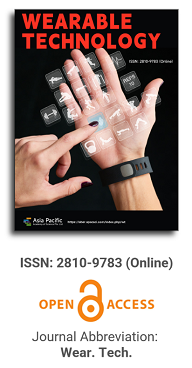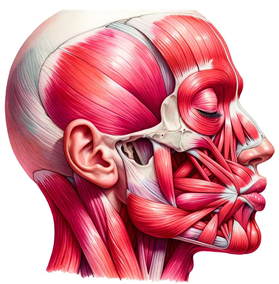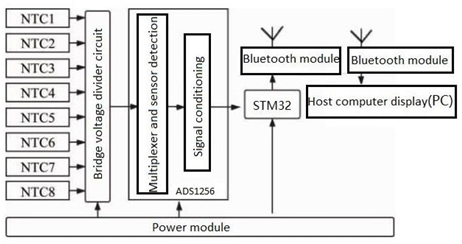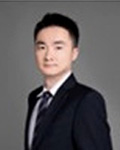

This paper delves deeply into the innovative realm of integrating human emotions with wearable technology. The primary focus is on the conceptualization and development of a kiss transfer device that harnesses the power of wearable technology to bridge the physical gap in human-human interactions. By investigating the intricate nuances of the human-human kissing process, the research seeks to replicate this intimate gesture through a technological medium. The paper not only elaborates on the anatomy, evolution, and hormonal dynamics of kissing but also underscores the transformative potential of wearable technology in capturing and transmitting these intimate moments. This exploration opens up new horizons for long-distance relationships, offering a tangible touchpoint that goes beyond traditional communication methods. Through this pioneering work, the research positions wearable technology as not just a tool for communication but as an extension of our human emotions and expressions.

Bioethical thinking of cochlear implant in the treatment of deafness
Vol 1, Issue 2, 2020
Download PDF
Abstract
Otolaryngologists engaged in cochlear implant surgery are very careful to require a variety of complex medical and clinical examinations in order to make a clear diagnosis and perform surgery to improve hearing and speaking. From a biomedical point of view, this is not controversial. However, in the analysis, if the personal, social, family and environmental factors of deaf people are not considered as important as pathology, the wanted results may be undermined. This reflective article highlights these situations, which are part of the bioethics view and considered to be a necessary supplement to the rehabilitation of deafness. The dilemma and conflict in bioethics are defined so as to put the pathology of deafness, the deaf and their environment in the framework of the concept of overall health and the doctors’ responsibility, then to reach the bioethics principles of Beauchamp and Childress. Its purpose is to show that cochlear implantation can be attributed to a valuable cutting-edge technology operation behavior, and the prejudices and values of this medical technology must be surpassed and understood, which directly or indirectly, positively or negatively affect the deaf.
Keywords
References
- World Health Organization (WHO). Deafness and hearing loss [Internet]. Available at: www.who.int/mediacentre/factsheets/fs300/es/.
- Ministry of health of Chile. Clinical practice guidelines. Cochlear implant. Rehabilitation treatment of patients with severe bilateral sensorineural deafness (in Spanish) [Internet]. 2008. Available at: http://web.minsal.cl/portal/url/item/bd81c4d96 853dd14e040010165014b19.pdf.
- Mexican Institute of Social Security. Clinical practice guidelines. Bilateral sensorineural deafness and cochlear implant. Evidence and recommendations (in Spanish). 2010. Available at: http://www.cenetec.salud.gob. mx/descargas/gpc/CatalogoMaestro/396_IMSS_10_ hipoacusia_neurosensorial/EyR_IMSS_396_10.pdf.
- Manrik M. Analysis of the cochlear implant as a treatment technique for profound hearing loss in pre and postlocutive patients. Journal of Otolaryngology 2006; 57(1): 2–23.
- Model entrepreneur, business philosophy and business ethics. Available at: https://empresariosmo-delo.jimdo.com/4-proceso/4-1-c%C3%B3mo-deber%C3%ADamos-aplicar-el-c%C3%B3digo-de-%C3%A9tica-en-los-negocios/4-1-1-dilemas-eticos/.
- Beauchamp T, Childress J. Principles of biomedical ethics. New York: Oxford University Press; 2009.
- Pabón S. Hearing impairment. What does that deaf man look like? Innovation and educational experience, 16 (in Spanish) [Internet]. 2009. Available at: http://www.csi-csif.es/ andalucia/modules/mod_ense/revista/pdf/Numero_16/SABINA_PABON_2.pdf.
- Escobar J. Bioética y Justicia Sanitaria (Spanish) [Bioethics and health justice] Bogota: Bosk University; 2001.
- World Health Organization (WHO). Universal declaration of human rights [Internet]. Available at: http://www.un.org/es/ universal-declaration-human-rights/.
- Pfeiffer ML. Module II, unit 2, clinical decision-making I, III. Clinical and social bioethics continuing education program [Internet]. Available at: http://www.redbioetica-edu.com.ar.
- Mainetti J. Medicalization of life. In: Basic Bioethics, bioethics crisis (in Spanish). La Plata: Keelung; 1990. p. 57–69.
- Mainetti, J. Outline of bioethics. La Plata: Keelung; 2000.
- Sass MH. Fritz Jahr’s 1927 concept of bioethics. Kennedy Institute Ethics Journal 2007; 17(4): 279–295.
- Garzón F. Fritz Jahr, el padre de la bioética? (Spanish) [Fritz Jahr, the father of bioethics?] Latin American Journal of bioethics 2009; 4(2): 6–7.
- Sass MH. El pensamientobioético de Fritz Jahr 1927–1934 (Spanish) [Fritz Jahr’s bioethics from 1927 to 1934]. Aesthethika 2011; 6(2): 20–33.
- Potter VR. Bioethics: Bridge to the future. New Jersey: Prentice Hall; 1971.
- Rendtorff JD. Basic ethical principles in European bioethics and biolaw: Autonomy, dignity, integrity and vulnerability—towards a foundation of bioethics and biolaw. Medicine, Health Care and Philosophy 2002; 5(3): 235–244. doi: 10.1023/a:1021132602330.
- Arnesen R. Joel Feinberg and the legitimacy of strict paternalism. Legal theory 2005; 11(3): 259–284.
- Canales SF. Rights of the deaf (in Spanish) [Internet]. Available at: www.fenascol.org.colindex.php?option=com.content.
- Morales E. Genetics and deaf community (in Spanish). Elements of science and culture 2004; 11(53): 19–23.
- Hottois G. La Ciencia entre valoresmodernos y la post modernidad (Spanish) [Science between modern values and postmodernism]. Bogota: Bosk University; 2007
Supporting Agencies
Copyright (c) 2020 Fabio David Urbano Bucheli

This work is licensed under a Creative Commons Attribution 4.0 International License.

Prof. Zhen Cao
College of Information Science & Electronic Engineering, Zhejiang University
China, China
Processing Speed
-
-
-
- <5 days from submission to initial review decision;
- 62% acceptance rate
-
-
Asia Pacific Academy of Science Pte. Ltd. (APACSCI) specializes in international journal publishing. APACSCI adopts the open access publishing model and provides an important communication bridge for academic groups whose interest fields include engineering, technology, medicine, computer, mathematics, agriculture and forestry, and environment.





